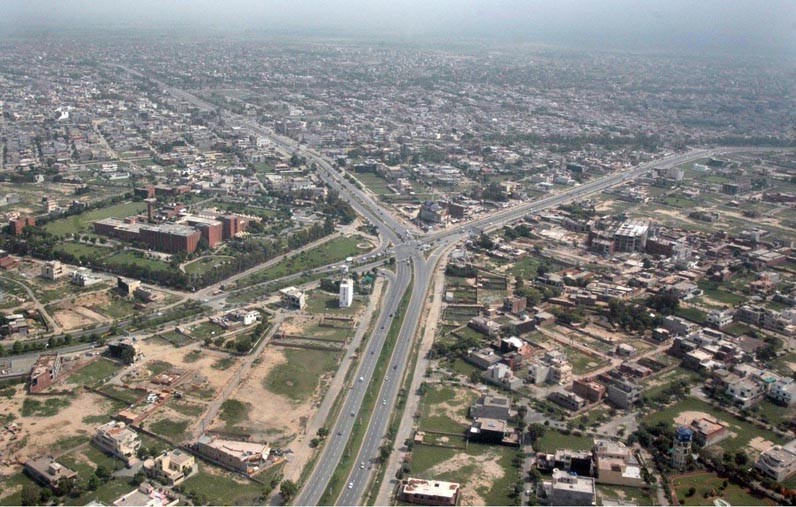
New property valuation mechanism raises more questions than it actually answers

In the budget 2016-17 the federal government announced to revise the decades-old land properties valuation mechanism, which has been quite manipulative and undervalued so far.
The government anticipates collecting additional revenue of approximately Rs70 billion by bringing the property business in major cities into the tax net.
The old valuation system has been determining value of immovable property under the deputy commissioner (DC) rates, instead of the prevailing market rates. Both the federal and provincial governments were losing a big portion of revenues due to undervaluation of properties.
The government announced that the State Bank of Pakistan (SBP) would provide a list of independent officials for determining fair market value of real estate in major cities.
The central bank issued a notification on July 4 and provided a list of 59 valuator companies for assessment of the property value in sales and purchase in order to help tax authorities in determining capital gain tax and any hidden amount in such transactions.
The SBP in its notification stated that the list of the 59 companies has been issued by using the powers under sub-section (4) of section 68 of the Income Tax Ordinance, 2001. More companies are expected to be added in the list.
The real estate stakeholders have again rejected this notification as well as the list. After a series of follow-up marathon sessions with the FBR and finance ministry, the government promulgated an ordinance on August 1, 2016 for implementation of the new rates of taxes, which will be applicable through a new valuation tables for the purpose of taxation of property in major cities.
Read also: The big factor
The new ordinance empowers the FBR, instead of the SBP to determine the fair market value of properties of areas across the country.
"We are not satisfied with FBR rates as well because the ordinance has created various categories of properties for valuation, providing unfair benefit to the property holders located in certain areas, like DHA," says Arif Yousuf Jeeva, Senior Vice Chairman of Association of Builders and Developers of Pakistan (ABAD).
"We had proposed to the federal government to increase the valuation rate gradually, raising by 50 per cent of the prevailing DC rates in the first year and then further increase in the coming years, but our recommendations were not considered," Jeeva tells TNS.
Under the new law, the government has introduced three slabs in order to further facilitate real estate investors. The ordinance fixes the rate of Capital Gain Tax (CGT) at 10 per cent on a property held for one year, 7.5 per cent on a property held between one and two years, and 5 per cent if the holding period of a real estate is between two and three years. If a property is held for more than three years, it will be exempted from CGT.
On the transactions made before July 1, 2016, the CGT rate will be collected at the rate of 5 per cent on a property held up to three years. The new valuation tables, under the ordinance will only be used for the purpose of calculating CGT, withholding taxes and for the purposes of Section 111 of the Income Tax Ordinance 2001.
Where no valuation tables is notified, the revenue officer of the districts or provincial governments or any other authority has been authorised to fix the rate according to the rate fixed for collection of stamp duty for the areas.
As per ordinance, the CGT rate will be reduced by 50 per cent on first sale of property acquired or allotted to serving or ex-servicemen of the armed forces as well as the federal and provincial governments, being original allottees of the property certified by the allotment authority if they sold plots given to them in lieu of service benefits within three years.
The government has increased the basic threshold for application of withholding tax on purchase of immovable property from Rs3 million to Rs4 million, thus the withholding tax (WHT) will now be applicable on properties worth Rs4 million or more.
In the budget, the rate of WHT however, has been doubled. For a seller of the property, the WHT rate has been increased from 0.5 per cent to 1 per cent for income tax return filers and from 1 per cent to 2 per cent for non-filers.
Like builders, real estate agents are also worried about their businesses as according to them the new tax regime would badly affect the investment in real estate.
"Since July, property transfer work at the Registrars’ offices has come to a virtual standstill and prices of plots in posh localities like Defence Housing Authority (DHA) and Clifton in Karachi has come down by 20-30 per cent," says Sajid Rana, a property advisor in DHA.
The number of property transactions has further reduced after issuance of the ordinance and those who have to get registration at any cost have to submit an affidavit that in case of change in the rate he/she will deposit it. "The affidavit will be made part of the property registration documents," says Rana who also represents Defence and Clifton Association of Real Estate Agents (DEFCLAREA).